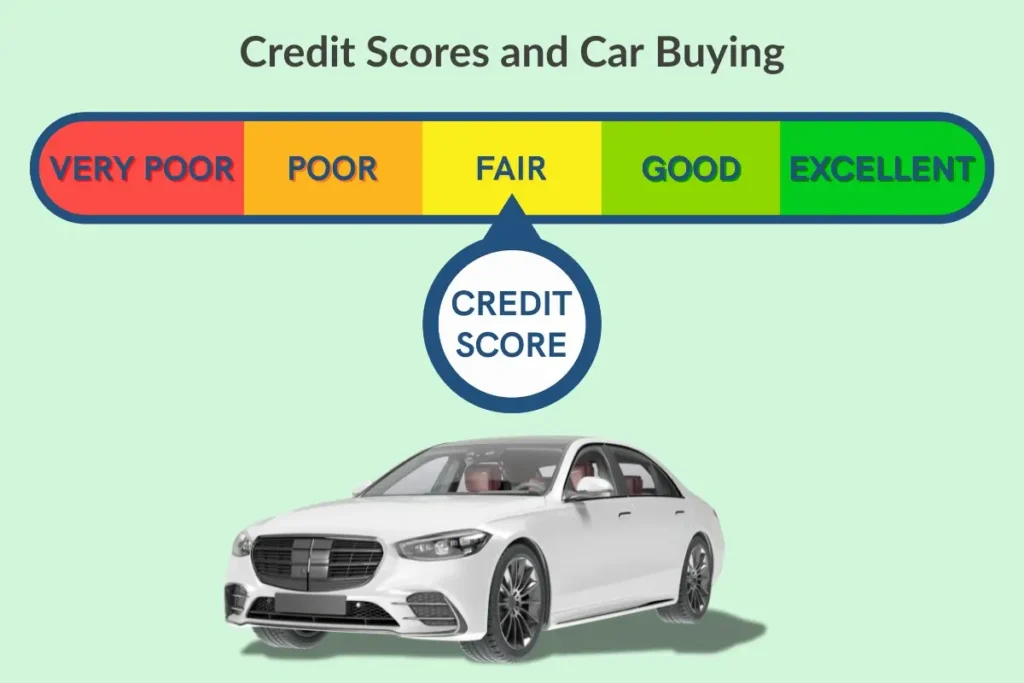What Credit Score Do First-Time Homebuyers Need to Buy a House?

If you’re one of the millions of Americans planning to buy your first home in 2025, you may be wondering what credit score a first-time home buyer needs to purchase a home.
Understanding credit score requirements will save you time and potential heartbreak during the home purchasing process. Your credit score affects not only whether you’ll qualify for a loan but also how much you’ll pay in interest over the life of your mortgage.
While some loan programs accept a low credit score 580, you’ll get better terms with a higher credit score. Before you start browsing listings or attending open houses, you’ll want to know exactly where your credit stands and what mortgage options are realistically within reach.
Key Takeaways
- Conventional mortgages require a minimum credit score of 620, making them suitable for first-time buyers with established credit histories.
- FHA loans offer flexible options with scores as low as 580 for a 3.5% down payment or 500 with 10% down.
- First-time buyers should aim for credit scores above 740 to secure the most favorable interest rates on conventional loans and to buy a house more easily.
- Credit utilization should stay below 30% while house hunting to maintain or improve scores for better loan terms.
- Regular credit monitoring and on-time payments are essential to protect loan approval chances during the mortgage application process.
Minimum Credit Scores By Loan Type
Understanding credit score requirements for different loan types can significantly impact a first-time homebuyer’s approval chances when exploring mortgage options.
Conventional mortgages typically require a minimum credit score of 620 for mortgage approval, while FHA loans offer more flexibility.
With FHA loans, you’ll need a 580 score for a 3.5% down payment, or you can qualify with a score as low as 500 if you can put 10% down.
VA loans don’t set standard minimum credit score requirements, giving lenders discretion in evaluating borrower profiles.
Suppose you’re considering USDA loans for low- to moderate-income buyers in rural areas. In that case, most lenders prefer a score of at least 640.
Understanding these financing options helps you choose the most suitable path to homeownership.
Credit Score Impact On Interest Rates
Your credit score determines loan approval and dramatically influences the interest rate you’ll receive on your mortgage. As a first-time homebuyer, you’ll find that lenders use a tiered system where every 20-point increase in your credit score can lead to better rates.
While conventional loans typically require a minimum credit score of 620, you’ll get the most favorable interest rates with scores above 740.
FHA loans offer more flexibility, allowing a 3.5% down payment with scores of 580 or higher. However, lower credit scores often result in higher loan costs through increased interest rates and additional mortgage insurance premiums.
Understanding this relationship between credit scores and interest rates is essential, as even minor rate differences can markedly impact your monthly payments and overall loan expenses.
Building Credit Before House Hunting
Before starting your house-hunting journey, establishing a solid credit profile should be your top priority. As a first-time homebuyer, you’ll want to focus on building credit through consistent, on-time payments, which make up 35% of your credit score.
Keep your credit utilization below 30% to demonstrate responsible borrowing habits to mortgage lenders.
Review credit reports regularly to catch and dispute any inaccuracies that could hurt your chances of securing a home loan.
While building your payment history, consider diversifying your credit profile by responsibly managing different types of credit.
This strategic approach to building credit before house hunting will help you qualify for better interest rates and increase your chances of mortgage approval.
Common Credit Score Obstacles
Many first-time homebuyers face considerable credit score hurdles that can delay or derail their path to homeownership. Suppose your credit score falls below the minimum requirement of 620. In that case, you’ll find qualifying for conventional mortgages with favorable terms challenging.
If these credit obstacles sound familiar, you’re not alone. New Leaf Financial Services specializes in helping first-time homebuyers overcome credit challenges through personalized guidance and proven credit repair strategies. Schedule a free consultation to learn how we can help you achieve your homeownership dreams.
While FHA loans offer more flexibility with a minimum score of 580, you’ll need a more significant 10% down payment instead of the standard 3.5%.
- High credit utilization ratios and late payments can considerably impact your credit score.
- Limited credit history or having only one credit account makes it harder to build a strong score.
- Inaccuracies on your credit report may be dragging down your score unnecessarily.
- Missing the minimum credit score requirements can force you to delay buying a home or accept less favorable loan terms.
You must address these obstacles before moving forward with your home-buying journey.
Credit Repair Timeline For Homebuyers
While improving your credit score might seem challenging, most homebuyers can achieve considerable improvements within 3 to 6 months through focused efforts.
Why navigate credit repair alone? New Leaf Financial Services has helped countless first-time homebuyers improve their credit scores and secure better mortgage rates through customized credit improvement plans. We can develop a targeted strategy to meet your homebuying timeline. Schedule a free consultation today to start your journey toward homeownership.
As a first-time homebuyer, you must meet specific credit score requirements for mortgage approval. Focus on establishing a consistent payment history; on-time payments considerably impact your score within months. Additionally, reducing your credit utilization ratios to below 30% can quickly boost your numbers.
You can accelerate your credit repair timeline by disputing errors on your credit reports. These typically resolve within 30 to 45 days.
Consider credit counseling services to develop personalized strategies. Many clients see progress in as little as 6 weeks. With dedication to score improvements and professional guidance, you can work toward meeting mortgage requirements efficiently.
Credit Monitoring During Mortgage Application
Once you’ve started your credit repair journey, maintaining active credit monitoring throughout your mortgage application is key to your success.
Your credit score directly impacts your loan approval chances and interest rates, making it essential to track any changes during this critical period. Checking your credit regularly helps you spot and address potential issues that could affect your mortgage application.
- Set up credit monitoring alerts to track FICO score fluctuations that might impact your mortgage loan terms.
- Keep your credit utilization low and maintain timely debt payments to protect your score
- Review your credit report monthly to catch and dispute any inaccuracies promptly
- Work with your lender to understand their specific credit monitoring tools and requirements
As a first-time homebuyer, staying proactive with credit monitoring can help you secure better mortgage terms and guarantee a smoother approval process.
Conclusion
Good credit plays a significant role in determining your home-buying options. Credit score requirements vary from program to program. Still, many buyers find it much easier to use FHA, mainly because of its favorable terms. Many FHA loans only require a score as low as 580.
Let's Build Your Path to Better Credit
Get expert analysis of your credit situation and discover the steps to achieve your financial goals.
Book a ConsultationRealted Posts
What Credit Score Is Needed to Buy a Car
Just as climbing Mount Everest requires different levels of preparation for various routes, securing a car loan demands different credit scores depending on your chosen path. You’ll find
How Late Payments Impact Your Credit Report
Let’s consider Sarah, who missed her credit card payment by just 35 days while moving between apartments. Like many consumers, she didn’t realize this single oversight would slash

